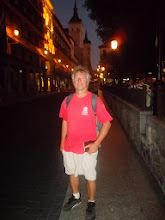Fyodor Doestievsky has one of his characters, Ivan Karamazov, say in
The Brothers Karamazov: "Without God all things are permissable." This is something that should make us pause and take account of how we have exiled God from the modern culture and the consequences that such an exile will have.
We see the consequences of such an exile in regard to what we euphemistically call "reproductive technologies". There is a new fad that has come to be known as "selective reduction" which is the pretty phrase that is used for the elimination of one of the fetuses in a multiple pregnancy. Yes, Ivan you are so right. "Without God all things are permissable."
Here is the quote by Abraham Lincoln which underscores what is happening today...
“We have been the recipients of the choicest bounties of Heaven. We have been preserved these many years in peace and prosperity. We have grown in numbers, wealth and power as no other nation has ever grown. But we have forgotten God. We have forgotten the gracious Hand which preserved us in peace, and multiplied and enriched and strengthened us; and we have vainly imagined, in the deceitfulness of our hearts, that all these blessings were produced by some superior wisdom and virtue of our own. Intoxicated with unbroken success, we have become too self-sufficient to feel the necessity of redeeming and preserving grace, too proud to pray to the God that made us! It behooves us then to humble ourselves before the offended Power, to confess our national sins and to pray for clemency and forgiveness.”—President Abraham Lincoln, March 30, 1863, Proclamation Appointing a National Day of Fasting

